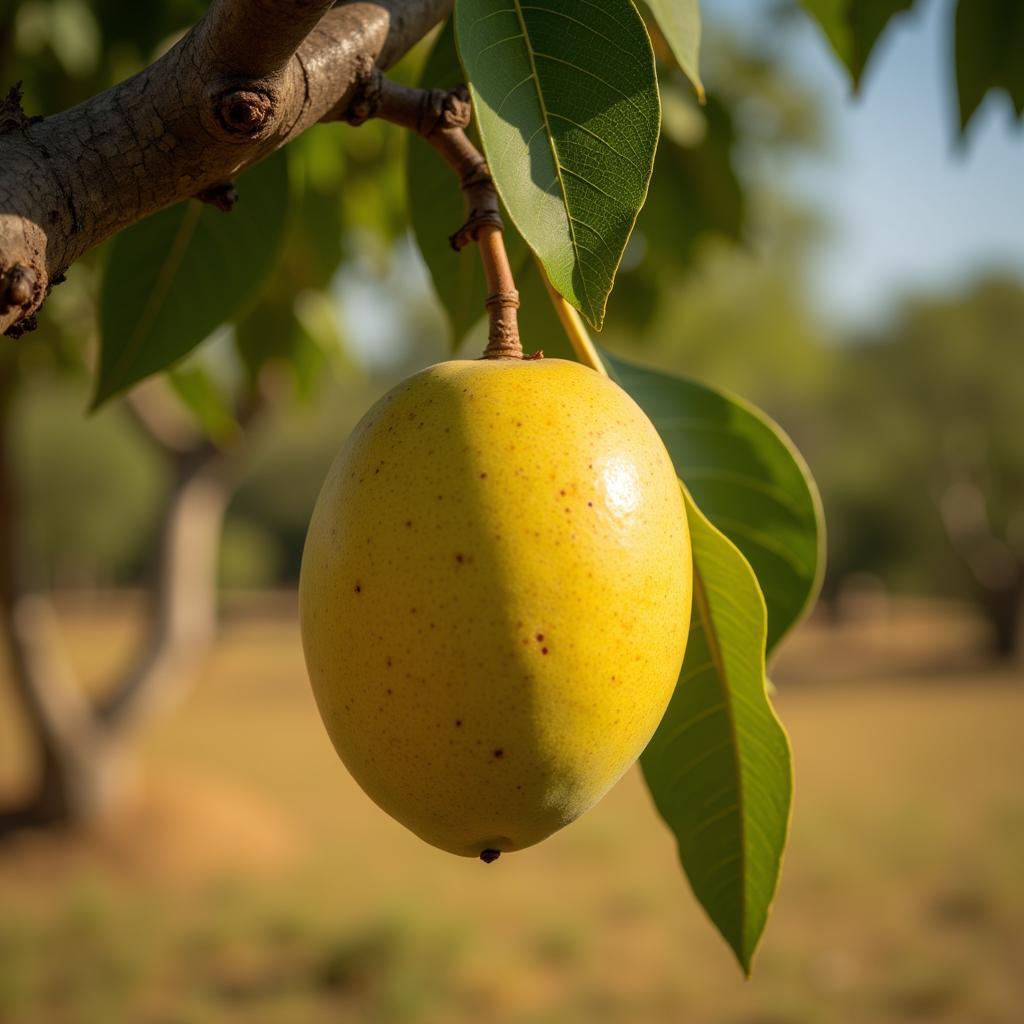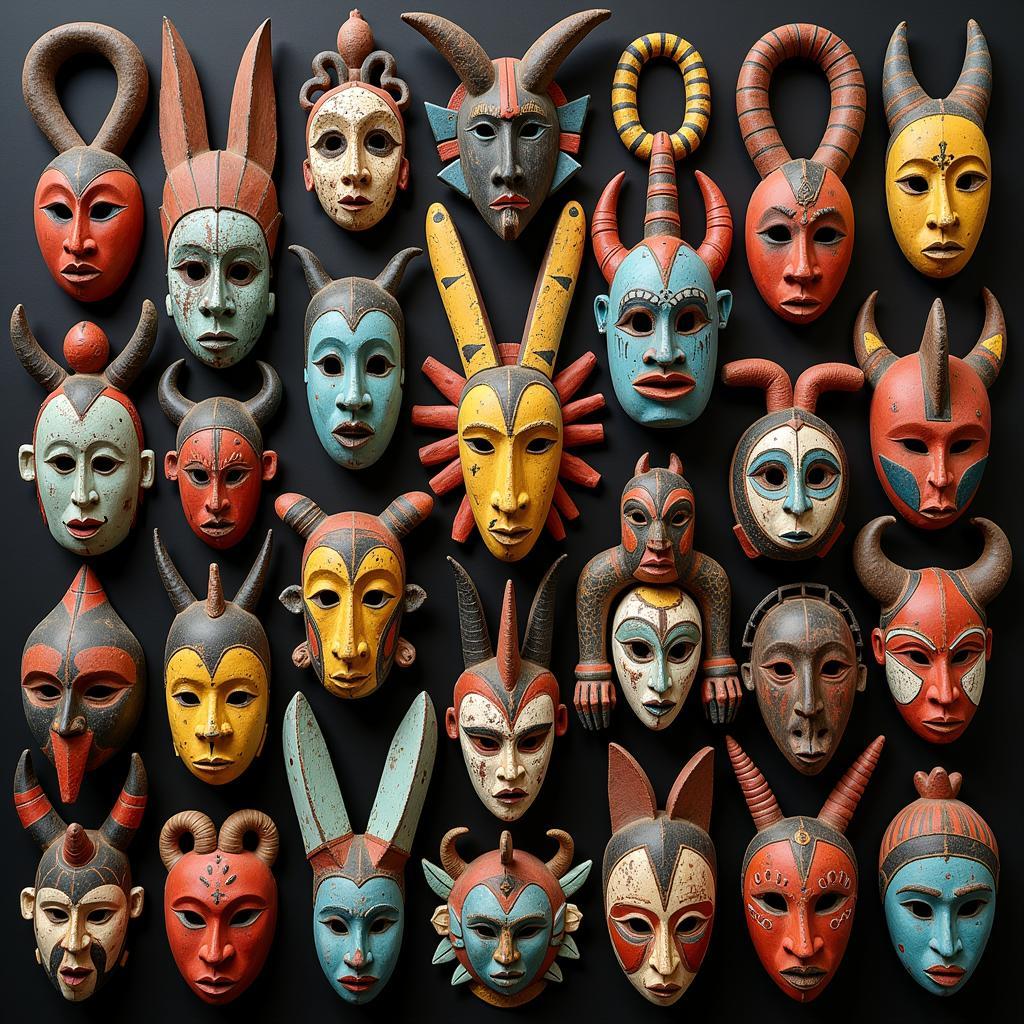Unveiling the Magic of African Amarula: A Taste of the Wild
Amarula, a name synonymous with Africa’s enchanting landscapes and rich biodiversity, conjures images of majestic elephants and sun-drenched savannas. But beyond its exotic allure lies a fascinating story of a uniquely African liqueur crafted from the fruit of the marula tree, a botanical treasure deeply woven into the continent’s cultural tapestry.
 Marula Fruit Tree in the African Savanna
Marula Fruit Tree in the African Savanna
The Marula Tree: A Gift from the African Soil
The marula tree, scientifically known as Sclerocarya birrea, thrives in the warm, semi-arid regions of Southern Africa. For centuries, indigenous communities have revered this “Tree of Life” for its versatility and abundance. Its bark, leaves, fruit, and even its kernels hold immense cultural and practical significance.
The marula fruit, ripening from January to March, becomes a feast not only for humans but also for a variety of animals, most notably elephants, who are known to travel miles to indulge in its juicy sweetness.
From Fruit to Liqueur: The Birth of Amarula
The journey from fruit to the celebrated Amarula liqueur is a testament to both tradition and innovation. The ripe marula fruits are harvested, often by hand, ensuring only the finest specimens are selected. The pulp is separated, fermented, and distilled, much like the process for making wine.
This marula wine then undergoes double distillation in copper pot stills, a meticulous process that imparts a smooth and refined character. After maturing for two years in French oak barrels, the spirit is blended with fresh cream, resulting in the velvety texture and rich flavor profile that defines Amarula.
A Taste of Africa in Every Sip
Amarula’s flavor profile is a delightful dance of sweet and tart, with notes of caramel, vanilla, and a hint of citrus. It’s best enjoyed chilled, either neat or over ice, allowing the complex flavors to unfold on the palate.
More Than Just a Drink: Amarula’s Cultural Significance
Amarula’s significance extends far beyond its role as a beverage. For generations, the marula fruit has been integral to traditional ceremonies, rituals, and celebrations across Southern Africa. Its fruit is believed to symbolize fertility and prosperity, while the tree itself holds a sacred place in many local cultures.
Amarula Today: A Global Ambassador for African Heritage
Today, Amarula stands as a global symbol of African craftsmanship and natural bounty. Its popularity has transcended borders, introducing the world to the unique flavors of the continent and the captivating story of the marula tree. By supporting sustainable harvesting practices and community development projects, Amarula ensures that the legacy of this extraordinary fruit continues to thrive.
FAQs about African Amarula
What does Amarula taste like?
Amarula offers a unique blend of sweet and tart flavors, reminiscent of caramel, vanilla, and citrus, with a creamy finish.
How is Amarula best enjoyed?
Amarula is best served chilled, either neat or over ice. It can also be incorporated into a variety of cocktails for an exotic twist.
Is Amarula suitable for vegans?
As Amarula contains cream, it is not suitable for those following a vegan diet.
Where can I purchase Amarula?
Amarula is widely available at liquor stores and online retailers worldwide.
Exploring the World of African Flavors
Interested in delving further into the world of African flavors and ingredients? Check out these articles:
Uncork a Bottle of Amarula: Experience Africa’s Magic
Indulging in a glass of Amarula is more than just savoring a delicious liqueur; it’s an invitation to connect with the vibrant culture, rich history, and natural wonders of Africa.
For any inquiries or assistance, please reach out to our dedicated customer service team:
Phone: +255768904061
Email: kaka.mag@gmail.com
Address: Mbarali DC Mawindi, Kangaga, Tanzania
We’re available 24/7 to assist you.


